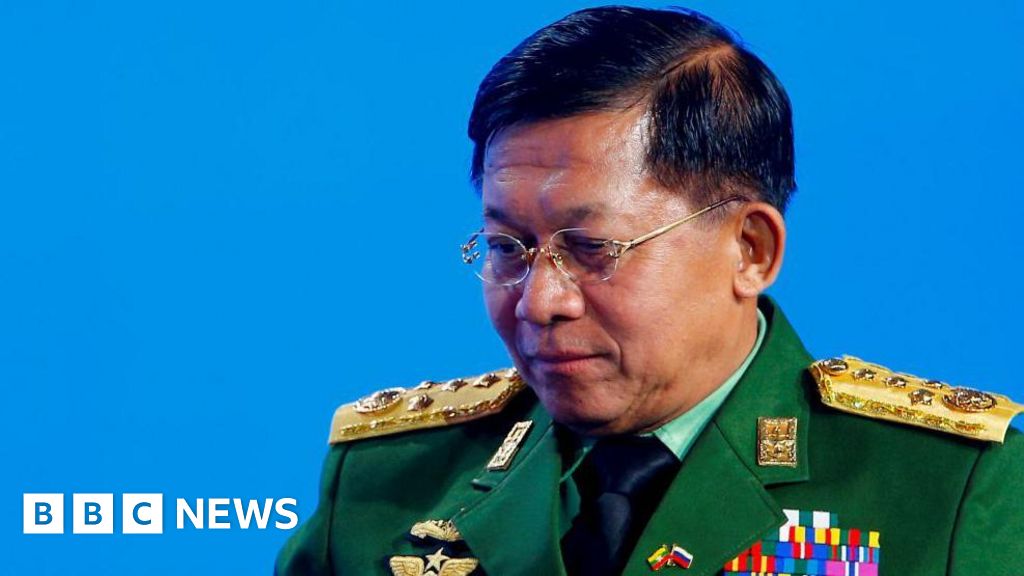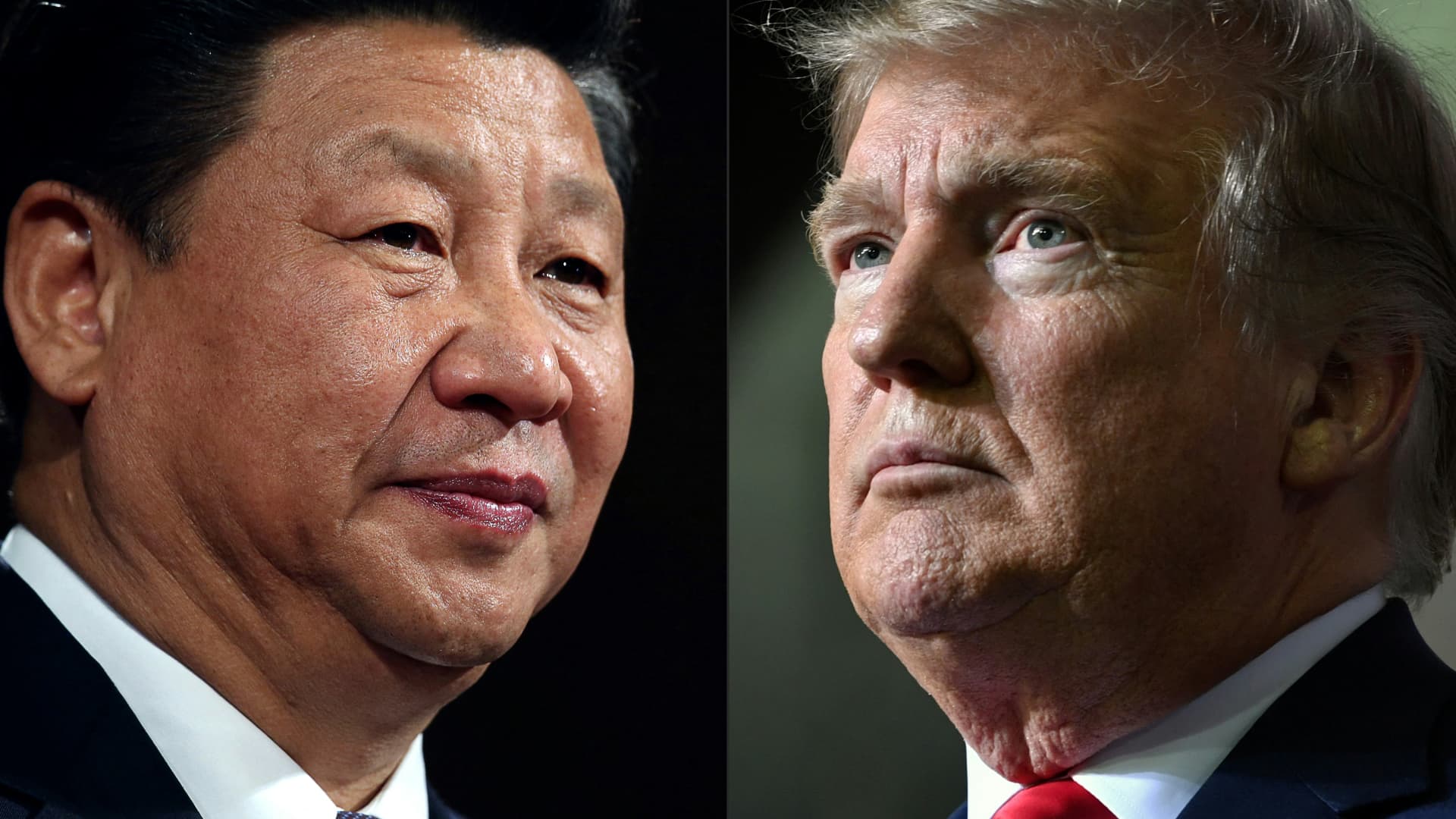Myanmar’s military leader Min Aung Hlaing is on his first visit to China since he ousted the elected government led by Aung San Suu Kyi in February 2021.
The significant losses his regime has suffered in the civil war at the hands of poorly-armed insurgents has raised questions over how long he will remain at the helm.
So, the invitation to visit China – an important ally, neighbour and Myanmar’s largest trading partner – is significant, although it is not a state visit.
It is a long way from a Chinese endorsement of his disastrous handling of the post-coup chaos in Myanmar, but it does suggest that Beijing sees him as an essential part of a solution to the conflict there.
Leading a large delegation of officials and business figures, Min Aung Hlaing arrived on Tuesday in Kunming, a city in the province of Yunnan, which shares a long border with Myanmar.
He is attending a minor summit of countries in the so-called Greater Mekong Sub-region.
The embattled leader has cut an isolated figure since the coup, and been shunned by the regional gatherings which are usually attended by Burmese leaders.
The few overseas trips he has made since 2021 have mainly been to Russia, now a staunch ally.
During his visit, he is expected to meet Chinese Premier Li Qiang, who is presiding over the summit. But this is otherwise a low-level affair, attended by heads of government from other authoritarian governments in the region, such as Laos, Cambodia and Vietnam.
China always takes the symbolic importance of diplomatic protocol seriously, and will be conscious of the signal sent out by Min Aung Hlaing’s presence at a Chinese-hosted meeting.
This matters, after a perception over the past year that China might be preparing to wash its hands of Min Aung Hlaing, as the civil war has become increasingly costly for Beijing.
The ethnic insurgent alliance which has inflicted the greatest defeats on the Myanmar military operates along the border with China, and launched its offensive a year ago with the declared objective of shutting down scam centres of which thousands of Chinese citizens had become victims.
It was widely presumed that China, frustrated by the junta’s refusal to act, had given the insurgents a green light to move in and do so.
Since then, though, China has tried to rein in the insurgents, to prevent an outright collapse of the military regime in Nay Pyi Daw.
Beijing is known to be pushing Min Aung Hlaing to come up with a timetable for elections to bring an end to military rule. It wants cross-border trade restored, and ambitious Chinese investment plans for Myanmar protected.
Many of the groups fighting the military takeover in Myanmar have vowed never to negotiate with the coup leaders. They argue that the military must be taken out of Burmese politics for good and put under civilian control, and a new federal political system established.
The National Unity Government (NUG), which represents the elected administration ousted by the coup, has objected to the implicit recognition given to the junta by China’s invitation to Min Aung Hlaing this week.
“Myanmar’s people want stability, peace and economic growth. It is Min Aung Hlaing and his group who are destroying these things,” said the NUG’s spokesperson, Kyaw Zaw.
“I am concerned that [the visit] will unintentionally incite a misunderstanding of the Chinese government among Myanmar’s public.”
But the opposition is still a long way from defeating the junta, and China fears that if it were to collapse, even worse chaos might ensue as different armed groups jostled for power.
It looks like China is willing to work with the junta, despite the military regime’s record of brutality and incompetence.
And for now, Chinese-led diplomacy is all there is because Western influence is negligible.
India, Myanmar’s other giant neighbour, has concerned itself largely with localised border issues.
And the efforts of Asean, the Association of South East Asian Nations, of which Myanmar is a member – essentially a five-point consensus agreed with Min Aung Hlaing just three months after his coup – have gone nowhere.
China alone has the commitment and influence to make a plausible attempt to end the civil war in Myanmar.











